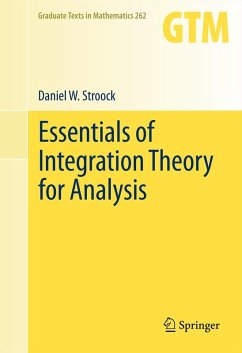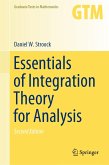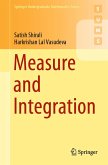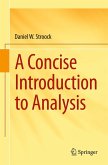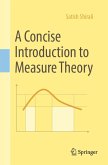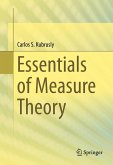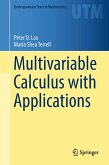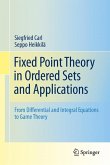Essentials of Integration Theory for Analysis is a substantial revision of the best-selling Birkhäuser title by the same author, A Concise Introduction to the Theory of Integration. Highlights of this new textbook for the GTM series include revisions to Chapter 1 which add a section about the rate of convergence of Riemann sums and introduces a discussion of the Euler-MacLauren formula. In Chapter 2, where Lebesque's theory is introduced, a construction of the countably additive measure is done with sufficient generality to cover both Lebesque and Bernoulli measures. Chapter 3 includes a proof of Lebesque's differential theorem for all monotone functions and the concluding chapter has been expanded to include a proof of Carathéory's method for constructing measures and his result is applied to the construction of the Hausdorff measures.
This new gem is appropriate as a text for a one-semester graduate course in integration theory and is complimented by the addition of several problems related to the new material. The text is also highly useful for self-study. A complete solutions manual is available for instructors who adopt the text for their courses.
Additional publications by Daniel W. Stroock: An Introduction to Markov Processes, ©2005 Springer (GTM 230), ISBN: 978-3-540-23499-9; A Concise Introduction to the Theory of Integration, © 1998 Birkhäuser Boston, ISBN: 978-0-8176-4073-6; (with S.R.S. Varadhan) Multidimensional Diffusion Processes, © 1979 Springer (Classics in Mathematics), ISBN: 978-3-540-28998-2.
This new gem is appropriate as a text for a one-semester graduate course in integration theory and is complimented by the addition of several problems related to the new material. The text is also highly useful for self-study. A complete solutions manual is available for instructors who adopt the text for their courses.
Additional publications by Daniel W. Stroock: An Introduction to Markov Processes, ©2005 Springer (GTM 230), ISBN: 978-3-540-23499-9; A Concise Introduction to the Theory of Integration, © 1998 Birkhäuser Boston, ISBN: 978-0-8176-4073-6; (with S.R.S. Varadhan) Multidimensional Diffusion Processes, © 1979 Springer (Classics in Mathematics), ISBN: 978-3-540-28998-2.
Dieser Download kann aus rechtlichen Gründen nur mit Rechnungsadresse in A, B, BG, CY, CZ, D, DK, EW, E, FIN, F, GR, HR, H, IRL, I, LT, L, LR, M, NL, PL, P, R, S, SLO, SK ausgeliefert werden.
From the reviews:
"This volume is an appropriate text for a one-semester graduate course in integration theory and is complemented by the addition of several problems related to the new material. ... This volume should become a new relevant reference for integration theory. It will help the reader to sharpen his/her sensitivity to issues of measure theory, and to renew his/hers expertise in integration theory. ... warmly recommends the book with confidence to anyone who is interested in understanding modern integration theory." (Vicentiu D. Radulescu, Zentralblatt MATH, Vol. 1228, 2012)
"This is a book in measure theory at the graduate level. ... The presentation is clear and concise, and detailed proofs are given. ... Each section also contains a long and useful list of exercises. ... The book is certainly well suited to the serious student or researcher in another field who wants to learn the topic. ... the book could be used by lecturers who want to illustrate a standard graduate course in measure theory by interesting examples from other areas of analysis." (Lars Olsen, Mathematical Reviews, Issue 2012 h)
"This volume is an appropriate text for a one-semester graduate course in integration theory and is complemented by the addition of several problems related to the new material. ... This volume should become a new relevant reference for integration theory. It will help the reader to sharpen his/her sensitivity to issues of measure theory, and to renew his/hers expertise in integration theory. ... warmly recommends the book with confidence to anyone who is interested in understanding modern integration theory." (Vicentiu D. Radulescu, Zentralblatt MATH, Vol. 1228, 2012)
"This is a book in measure theory at the graduate level. ... The presentation is clear and concise, and detailed proofs are given. ... Each section also contains a long and useful list of exercises. ... The book is certainly well suited to the serious student or researcher in another field who wants to learn the topic. ... the book could be used by lecturers who want to illustrate a standard graduate course in measure theory by interesting examples from other areas of analysis." (Lars Olsen, Mathematical Reviews, Issue 2012 h)

